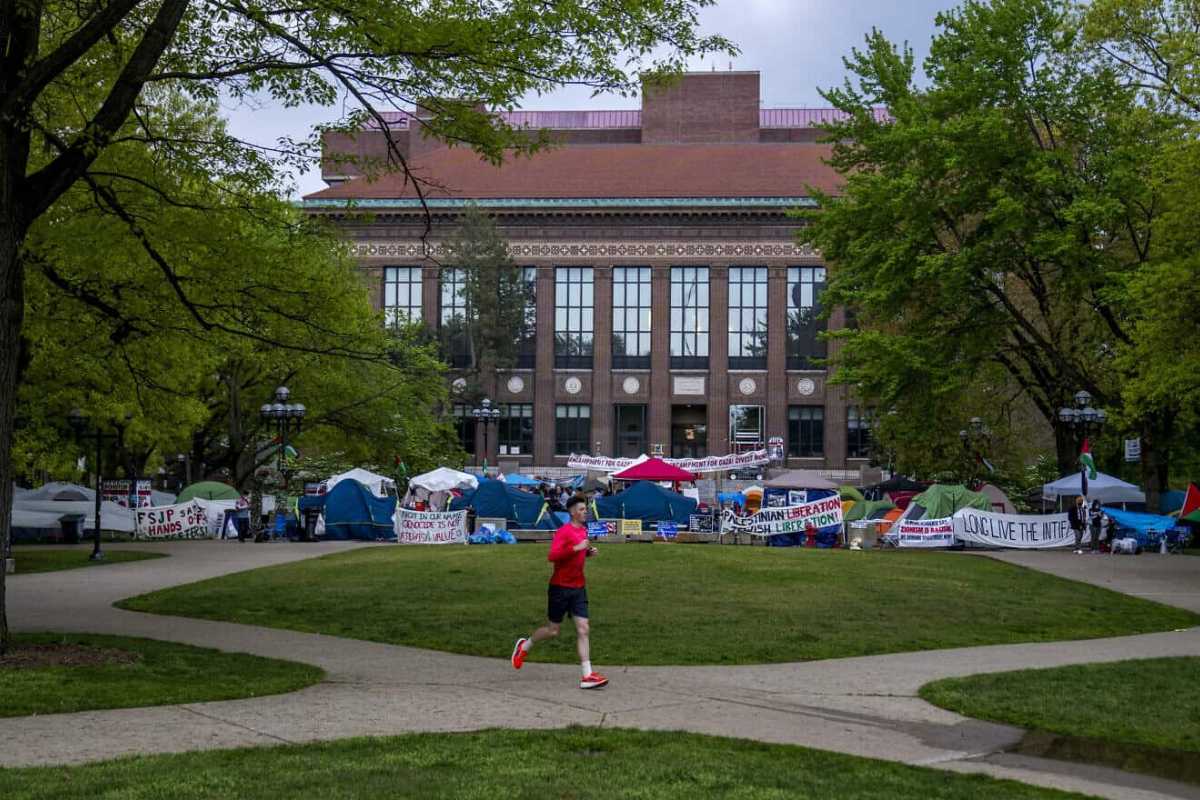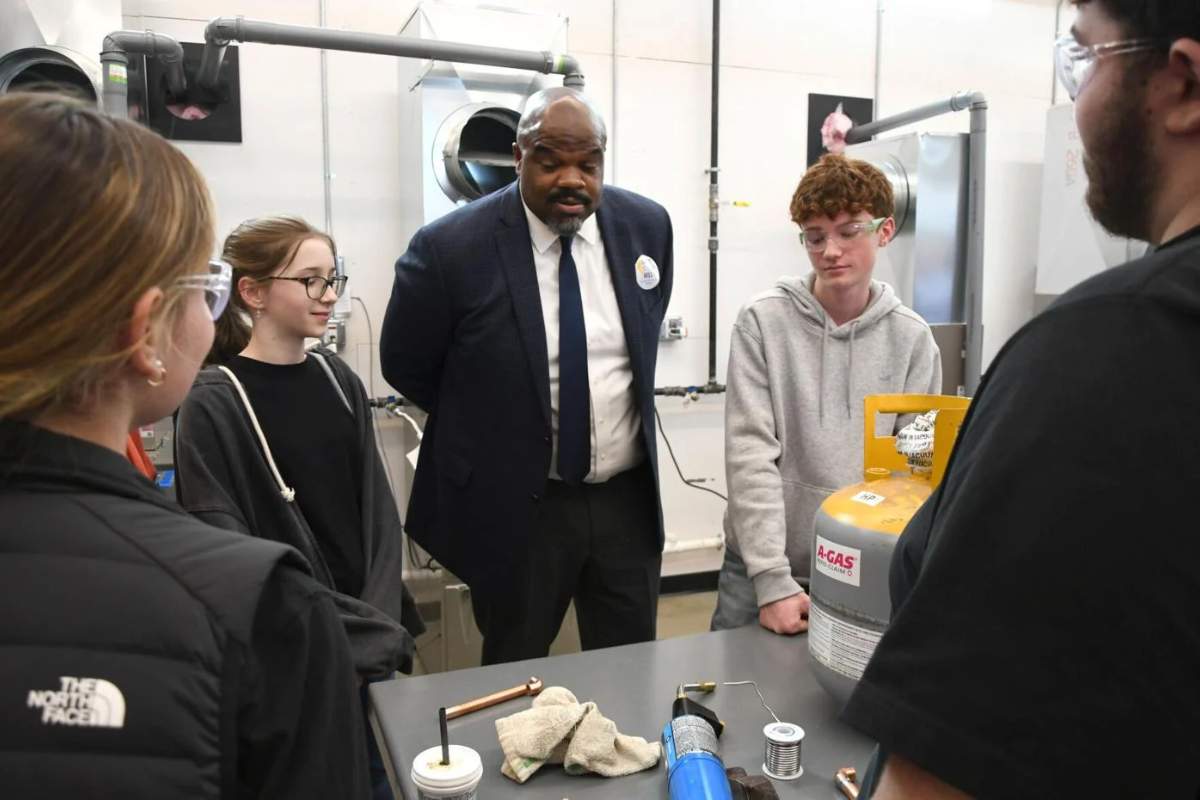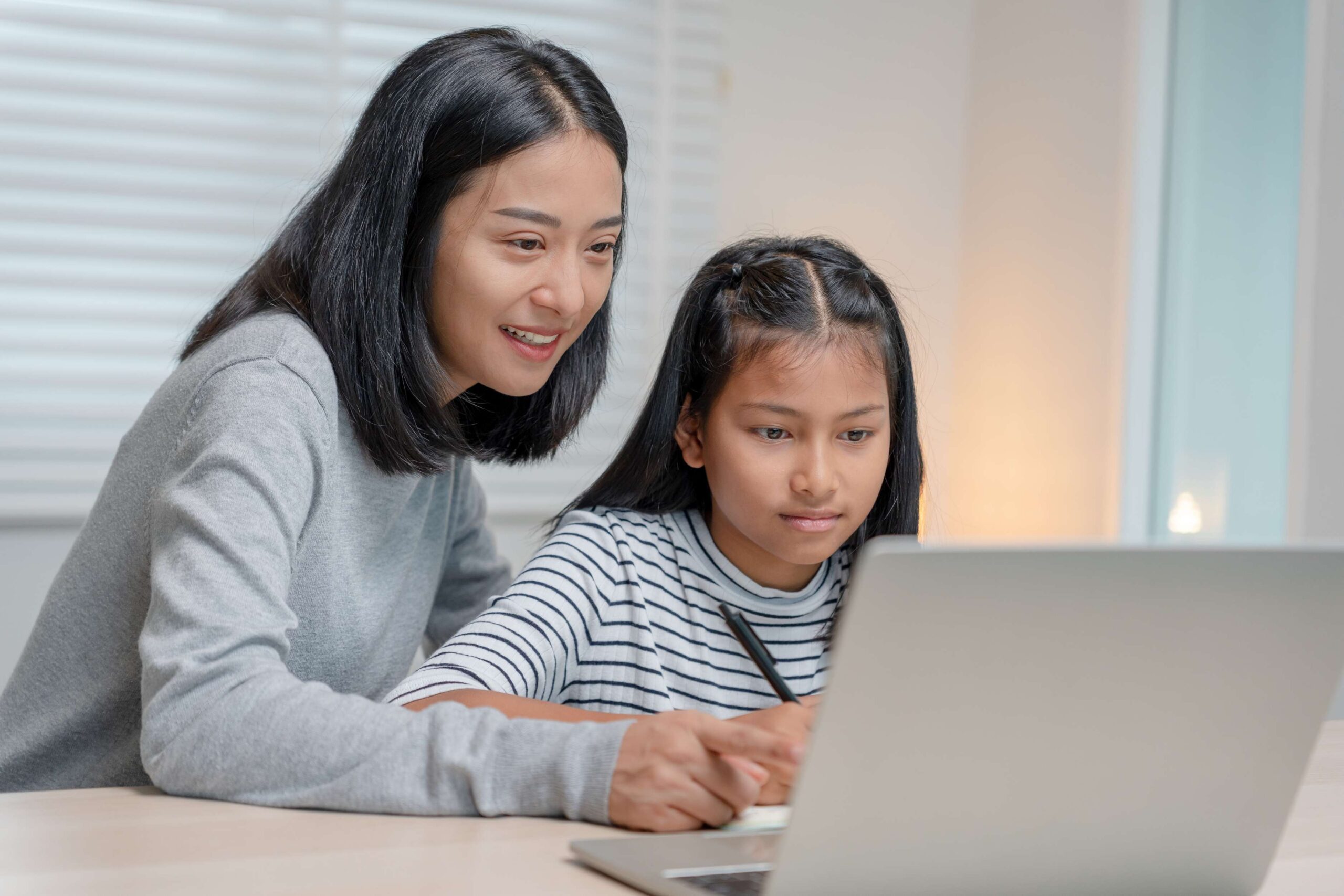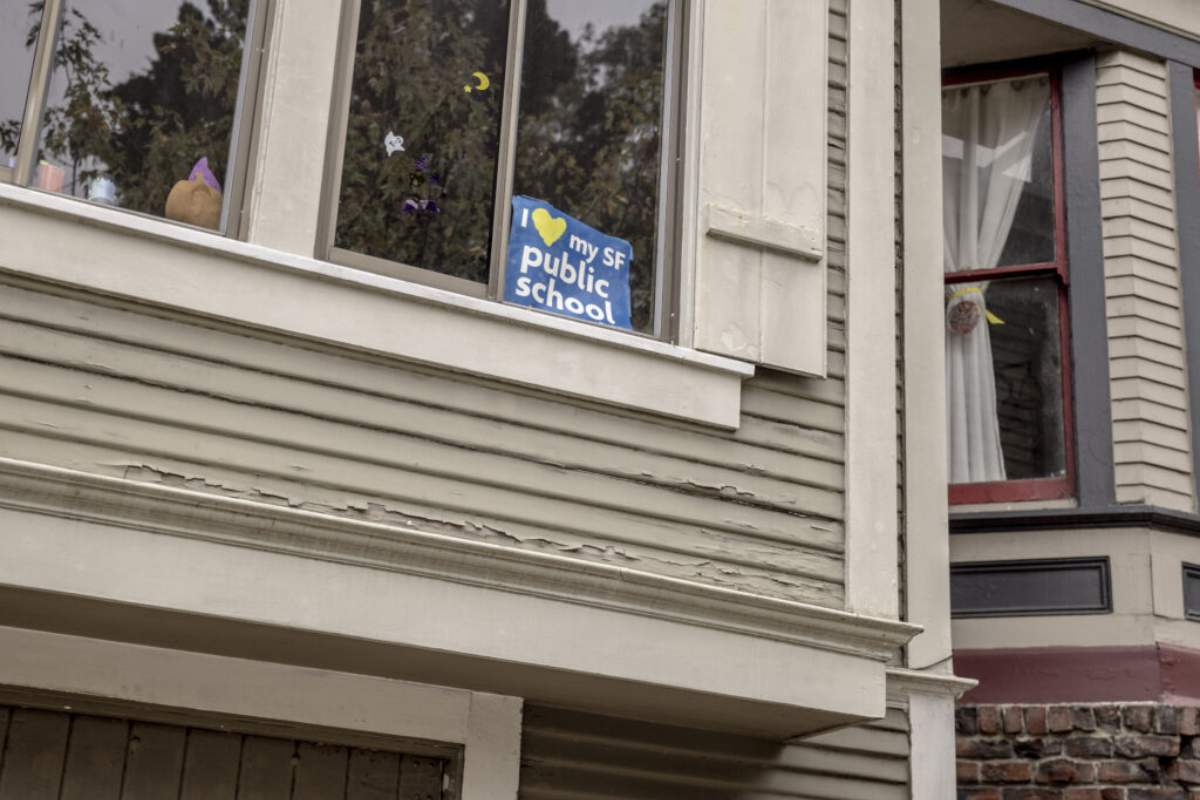All but one of the members of the Chicago Board of Education are being replaced by Mayor Brandon Johnson, who is appointing supporters with a background in nonprofit and grassroots organising.
As the new mayor works to transform education in the city, the adjustments are among his most crucial ones to far. Johnson worked for the Chicago Board of Education’s Teachers Union for the most of his career, which enabled him advance from political outsider to City Hall.
Compared to previous years, when many of the seven positions were filled by consultants, solicitors and bankers, the new board will feel different. In comparison to her predecessors, former Mayor Lori Lightfoot appointed more educators and Chicago Board of Education’s Public Schools parents, and Johnson is continuing this trend by choosing a number of activists to his new board.
One of his new members works in philanthropy at a bank, while the only lawyer he appointed leads a legal aid organisation.
“It’s my honour to bring together such a diverse group of people from community, business, philanthropy, and elsewhere to collaborate around a vision for our schools that ensures every student has access to a fully resourced, supportive, and nurturing learning environment,” Johnson said in a statement. These are CPS parents, just like me, and education advocates committed to developing learning environments that assist our kids both inside and outside the classroom.
Jianan Shi, 33, who has served as the executive director of the parent advocacy organisation Raise Your Hand for Illinois Public Education since 2019, is the next head of the school board. He’s leaving that post right now. When the school system threatened to increase class sizes in 2010, that group got its start. Shi, a native of Boston, led the group after spending three years as a teacher at Solorio High School in Gauge Park.
Shi described his appointment as a “honour, privilege, and responsibility that I do not take lightly,” and he said he would use it to fix the system’s flaws. Shi has worked as a teacher, an organiser, and an undocumented immigrant in the past.
We have a huge obligation to fund special education, strengthen local school councils, and develop a family agenda that prioritises those who will be most affected, he said. “We can build a district that benefits everyone by leveraging genuine engagement, expanding wrap-around initiatives like sustainable community schools, and investing in more initiatives like [career and technical education].” We will fight for increased funding at all levels and help the incoming 21-seat school to Chicago Board of Education succeed.
Vice President of the board will be Elizabeth Todd-Breland. Professor of history at the University of Illinois at Chicago Board of Education, Todd-Breland is the lone surviving member of Lightfoot’s administration and has been one of the board’s most liberal voices for the past four years.
It’s customary for new mayors to choose their school boards, so it wasn’t obvious if Johnson would make significant changes. Only Miguel del Valle, the board president of Lightfoot and a former state lawmaker, had made his intention to resign known. Michael Scott Jr., a former alderman, and Joyce Chapman, a Far South Side parent activist, were among the five new members.
The new Chicago Board of Education, which will begin meeting this month, will represent CPS until a larger, partially elected board of 21 members assumes over in 2025.
Similar to Johnson, the majority of these new board members will transition from being activists for change to becoming decision-makers who must make difficult choices as the educational system enters a new era.
Social and academic recovery from the COVID-19 epidemic are still going strong and are anticipated to do so for years to come. And even though this board is unlikely to place much importance on test results, the public will surely hold it accountable for academic advancement, particularly in light of the fact that state test scores significantly declined during the epidemic.
However, as federal pandemic relief funding expires in 2025, exposing an anticipated $628 million budget hole, policymakers will have fewer resources to pull from.
Because of its use of COVID-19 funds for support services and staff, such as counsellors and interventionists to aid with pandemic recovery, as well as other expenditures that activists, including some of the new board members, campaigned for, CPS is partially in financial peril. According to CPS CEO Pedro Martinez, the district’s staffing needs have been unmet for a long time because of understaffing in the schools.
But the structural gap in CPS will resurface after the epidemic funding is out. It will look to the state to fill the shortfall, but that’s not a given. According to estimates from the state, the district lacks almost $1.4 billion in resources that would be needed to give pupils a “adequate” education. The board will need to make difficult decisions in order to balance the budget if the state doesn’t provide significant support.
The board is under increasing pressure to update its deteriorating buildings. Many have significant environmental hazards including lead paint and pipes and are in poor condition as a result of years of neglected upkeep.
The district is under pressure from students, community members, and educators to fund green schools. A 10-year master facilities plan outlining the cost of properly modernising the schools, according to Martinez, is due by the end of the year.
Additionally, the school system has been losing students for the past 20 years, despite the possibility of enrollment stabilisation brought on by an influx of migrants. It now has a large number of schools, many of which are too tiny to operate effectively under the present CPS funding arrangement or to provide a comprehensive educational programme. When some of the board members are elected in 2025, the ban on school closings will end.
Progressive education advocates have a long list of tasks to complete in addition to attempting to increase CPS budget. This entails reconsidering CPS’s system of charter, magnet, and selective enrollment schools; changing its funding formula, which experts claim deprives Black communities’ schools of cash; reversing the privatisation of custodial and other facilities service; and removing police from schools.
Mary Fahey Hughes, a special education parent activist, will be joining the board with Shi. She has worked for Raise Your Hand for Illinois Public Education and joined the 19th Ward Parents for Special Education to actively advocate for her daughter’s special needs.
Another recent addition to the board is Michelle Morales, president of the grant-making Woods Fund Chicago Board of Education, which prides itself on advancing social, economic, and racial justice. Prior to that, she spent years overseeing the Mikva Challenge, a programme where Chicago teenagers engage in civic engagement and act as election judges.
The other new members are Rudy Lozano Jr., executive director of global philanthropy at JPMorgan Chase & Co., and Tanya Woods, an attorney who runs Westside Justice Centre, a legal aid organisation. Mariela Estrada, who previously worked for the Brighton Park Neighbourhood Council and is now the director of community engagement for United Way of Metro Chicago, Tanya Woods, and Mariela Estrada are the other new members. Rudy Lozano Sr., a well-known Chicago activist and community organiser who was killed in the 1980s, was the father of Rudy Lozano Jr.
Ald. Jeanette Taylor (20th), chair of the City Council’s Education Committee, was impatiently waiting for the cleaning up at the Board of Education to be completed. She was blunt in her criticism of the departing board members.
What did they do to promote the interests of youth? Taylor enquired. “They failed to complete any of the tasks they were required to complete. Why keep them, you ask?
“To not pay attention to what your parents and your community are teaching you about what they need and don’t need… It’s disgusting,” Taylor remarked.
The new board, she said, would “advocate on behalf of what Chicago Board of Education’s Public Schools are supposed to do, which is put children first.”
Taylor noted that the Board of Education often holds its sessions on the same day as City Council meetings, prohibiting her — as the chair of the Education Committee — and her colleagues from speaking. Taylor said she would want to see measures targeted at more openness. As one of the few accessibility measures led by Todd-Breland, the board announced earlier this spring that additional meetings will be held in the evenings and in local communities.
Taylor added that she hoped the new board’s first action would be to reject proposals to construct a $150 million high school on the Near South Side, especially in light of the potential harm that such a project could cause to surrounding historically Black schools.
“We cannot pay for it. Public schools are already not funded on a regular basis. Then you all go back and close schools that you claim are underused and performing poorly, despite the fact that you did nothing to support them or ensure that they became exciting places for children, she asked. We must assume some responsibility for the choices that others make.










